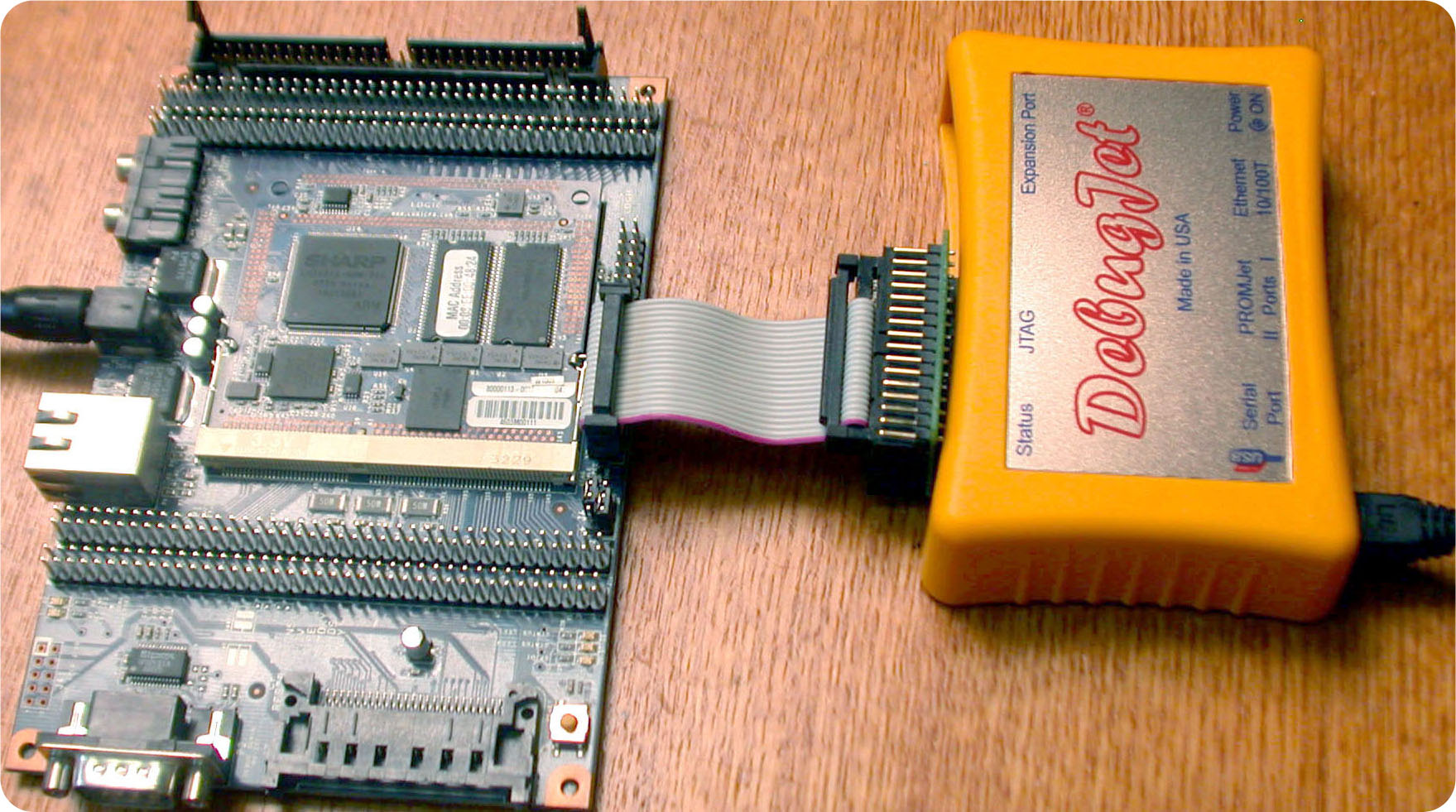Products : DebugJet : JTAG Flash Programming
JTAG Flash Memory Programming
DebugJet has an advanced built-in JTAG Flash memory programming software that supports a wide range of Flash memory types. This allows a user to program an on-board Flash memory chip for development or manufacturing applications. The built-in algorithm currently supports Flash memory from AMD, Intel or any CFI enabled Flash device. It also supports multi-chip Flash memory banks with more then one Flash chip connected in parallel to accommodate a wider data bus (e.g. 2 x 16-bit chips in a 32-bit setup). The Flash programming algorithm also supports advanced chip features that accelerates programming tasks such as the use of built-in memory buffers or multi-word programming capabilities.
DebugJet also supports most popular microcontrollers with built-in Flash memory such as Atmel Sam91 ARM based chips. Support for other microcontrollers is in the works. Since the Flash programming applications is built in a modular way, it is very easy to add new algorithms to support new Flash memory types and configurations.
The Flash programming functions are easy to use by simply writing a small script command file (2-3 lines). The first command normally defines the Flash device such as type and base memory address. Next commands are used to erase the Flash memory or program a data file into the device. The user can use DebugJet target server application to execute the script file from any windows or Linux computer. Since DebugJet target server can be run in batch mode, the user can use it to program the Flash memory in a manufacturing environment. The same command file can be called from within the Xpresso debugger to erase or program a Flash device during a debug session. Below are some highlights of DebugJet Flash programming features:
-
Supports parallel 8/16 bit Flash chips from AMD, Intel or any CFI based Flash memory.
-
Full support of Flash memory advanced features such as programming Buffers or multi-word programming to facilitate faster execution time.
-
Support for multi-chip Flash memory banks with more then one Flash chip connected in parallel (e.g. 2 x 16-bit chips in a 32-bit setup).
-
Extensive support for microcontroller built-in Flash memory chips such as Atmel SAm91 series controllers.
-
Programming algorithm is built into DebugJet and can be accessed from any computer. Unlike other JTAG tools that restrict Flash programming support to a single licensed computer or require an expensive floating license.
-
Flash programming capabilities can be used from any software tool or from within a debug session (Pat Pending).
-
Very easy to use macro language and commands to program any supported Flash memory type.
DebugJet JTAG Flash programming software is available for free download from the support section.
